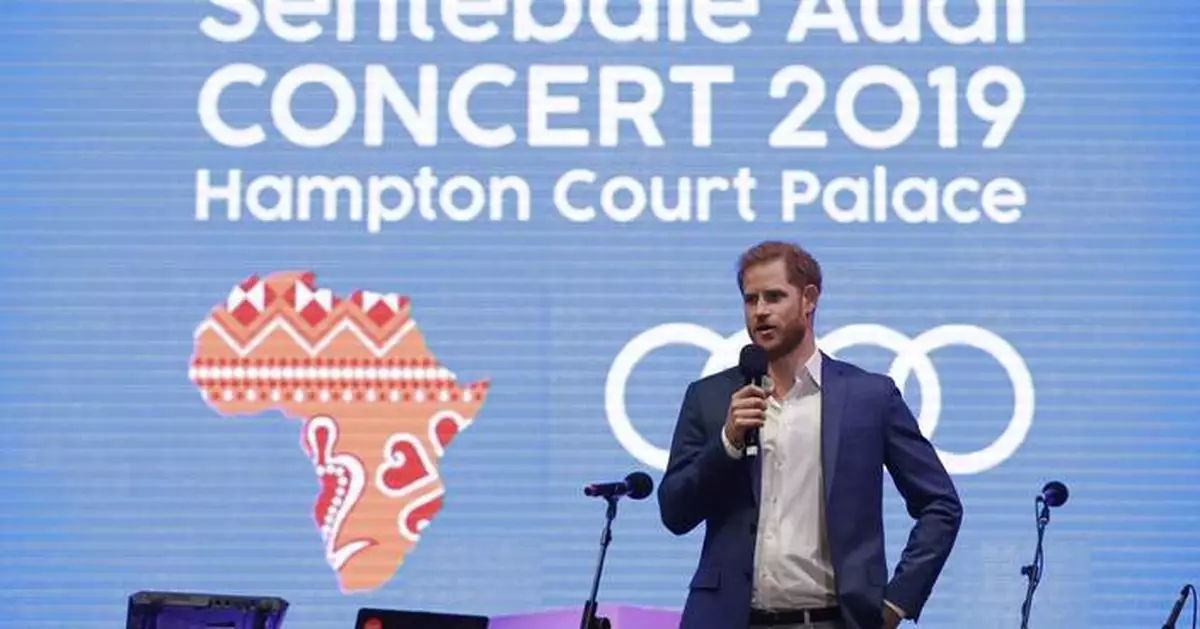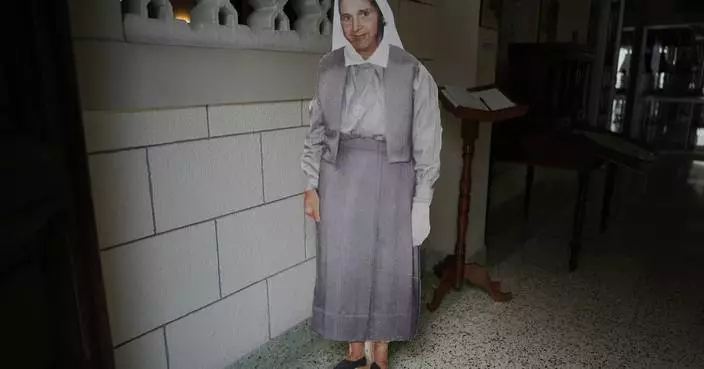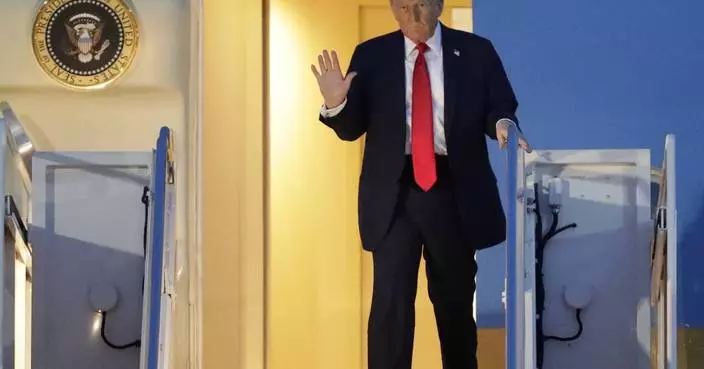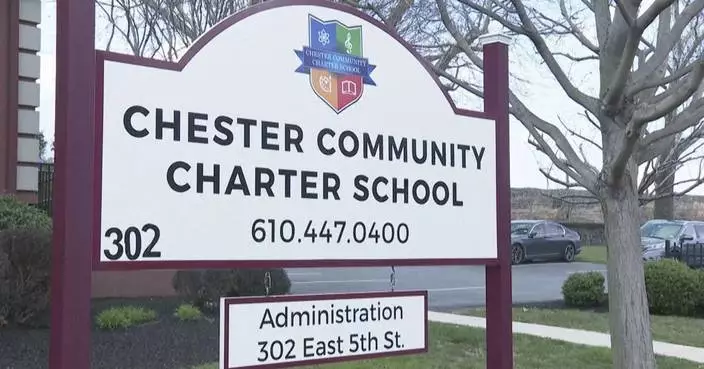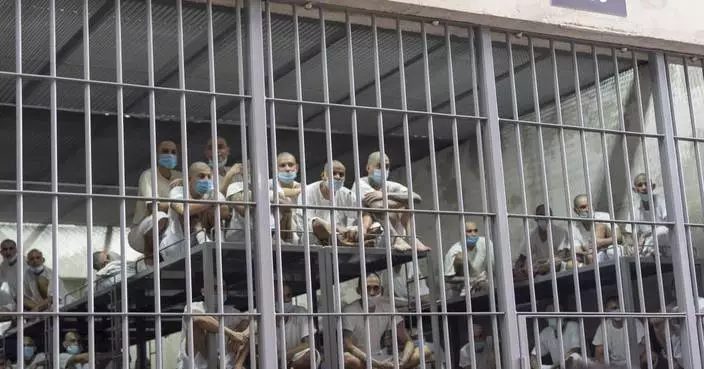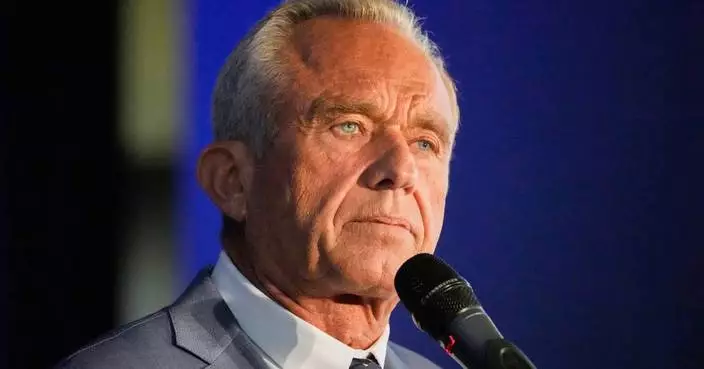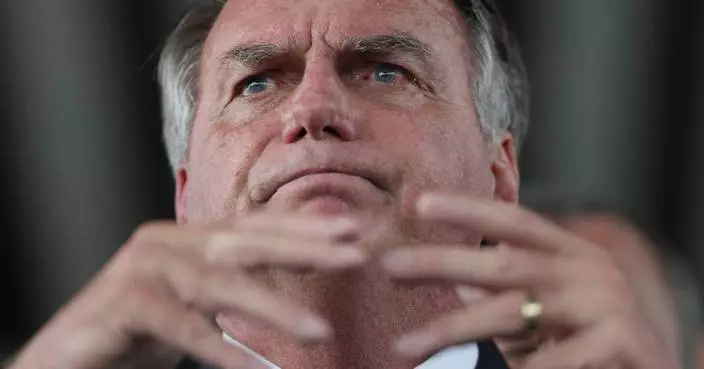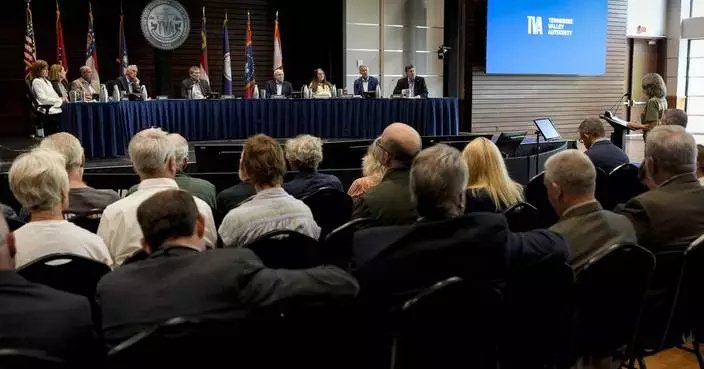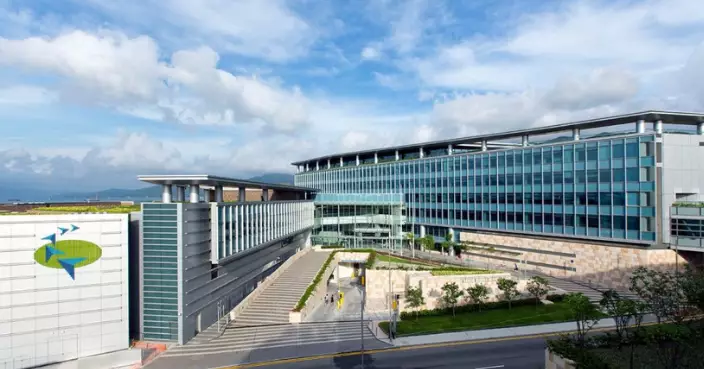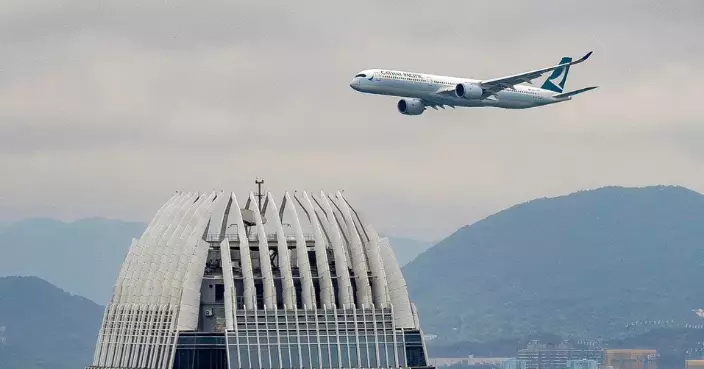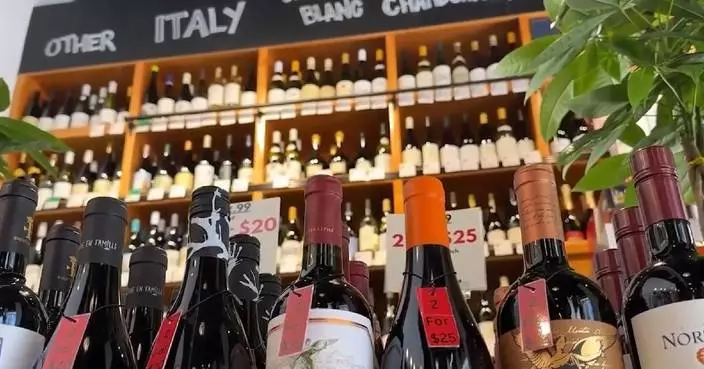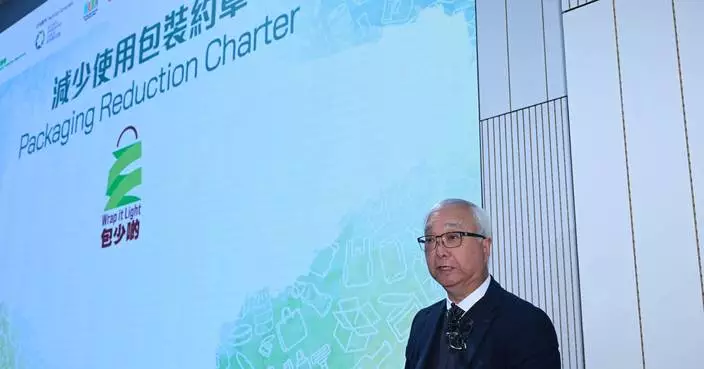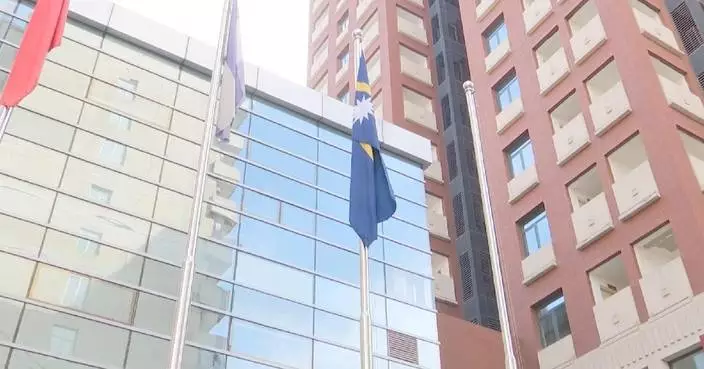CAPE TOWN, South Africa (AP) — Prince Harry's surprising resignation from an African charity he co-founded in memory of his mother, Princess Diana, came this week amid allegations of bullying, harassment, sexism and racism made by the organization's chairperson against unnamed board members.
Harry announced his resignation in a joint statement with Prince Seeiso of Lesotho, who he co-founded the Sentebale youth-focused charity with in 2006. The princes were patrons of Sentebale and weren't on the board of trustees.
Click to Gallery
FILE - Britain's Prince Harry speaks during a high level event sponsored by Lesotho at U.N. headquarters, Tuesday, Sept. 24, 2024. (AP Photo/Frank Franklin II, file)
FILE - Britain's Prince Harry speaks during the Clinton Global Initiative, on Tuesday, Sept. 24, 2024, in New York. (AP Photo/Andres Kudacki, file)
FILE - This Dec. 4, 2024 file photo shows Sentebale Chair Sophie Chandauka during the Royal Salute Polo Challenge, to benefit Sentebale, at the USPA National Polo Center in Wellington, Fla. (Yaroslav Sabitov/PA via AP)
FILE - Britain's Prince Harry, left, accompanied by Prince Seeiso of Lesetho, meets pupils in a class during his visit to the Kananelo Centre for the Deaf outside Maseru, Lesotho, Wednesday, Feb. 27, 2013. (AP Photo/Themba Hadebe, File)
FILE - Britain's Prince Harry speaks on stage during a concert hosted by his charity Sentebale to raise funds and awareness to support children and young people affected by HIV and AIDS in Lesotho, Botswana and Malawi, at Hampton Court Palace, in London, Tuesday June 11, 2019. (AP Photo/Matt Dunham, Pool, File)
They said they were quitting in support of the trustees, who left after a dispute with chairperson Sophie Chandauka.
Sentebale works in the southern African nations of Lesotho and Botswana and was started to help young people affected by AIDS after Harry spent part of a gap year in 2004 working at an orphanage in Lesotho for children whose parents died of the disease.
Sentebale means “don't forget me” in the Sesotho language, and Harry and Seeiso set it up in memory of their mothers.
Princess Diana was killed in a car crash in Paris in 1997. Seeiso's mother, the former queen of Lesotho, died in 2003.
In their statement, Harry and Seeiso said they were in shock at the developments at the charity, where the trustees had asked Chandauka to step down. She refused and filed papers at a British court to prevent her from being removed.
The princes said the trustees were acting in the best interests of Sentebale and had now resigned, and the breakdown in relationships was “devastating.”
“What’s transpired is unthinkable," the princes said.
Chandauka, a Zimbabwean corporate lawyer, said in her own statement that she had “dared to blow the whistle" about poor governance, abuse of power, bullying, harassment, sexism and racism at the charity, and said there had been a cover-up. Her allegations appeared to be directed at the trustees, but she didn't name anyone or give any details.
The trustees who resigned included Mark Dyer, a longtime mentor of Harry's. One of the other trustees, Kelello Lerotholi, told British television channel Sky News that Chandauka's allegations were surprising and “there was never even a hint” of misconduct by trustees.
Chandauka said that she had reported some of the board members to the U.K.'s Charity Commission, where Sentebale is registered. A spokesperson at Sentebale didn't respond to a request for more information on who Chandauka's allegations were specifically directed at or what they involved.
Sentebale has a special place for Harry and continued some of the work Princess Diana did by supporting AIDS charities and trying to remove stigmas around the disease. Diana visited South Africa to promote AIDS awareness in March 1997, five months before she died.
Sentebale was initially set up to help vulnerable children and young people affected by AIDS with health care services, education and vocational training. Lesotho, a poor mountainous kingdom surrounded by South Africa, is one of the worst-affected countries in the world by HIV.
Harry's charity had recently evolved to also address issues of youth health, wealth and climate resilience in southern Africa under Chandauka, and the future direction of the charity was a point of disagreement among its leadership, according to British media reports.
Harry visited Sentebale in Lesotho as recently as October, when he spent an evening around a campfire speaking with young people and said the charity was building a force of young advocates. On the same trip, Lesotho Prime Minister Sam Matekane said the country would always be Harry's “second home.”
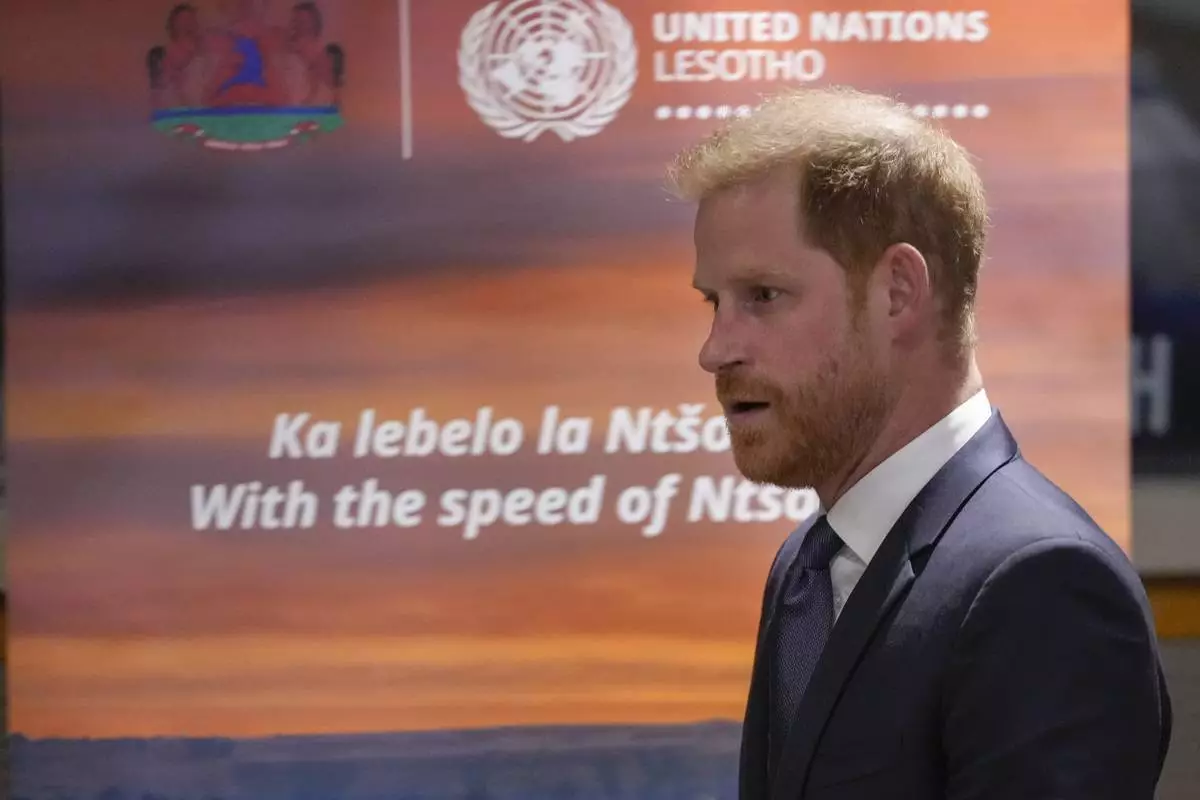
FILE - Britain's Prince Harry speaks during a high level event sponsored by Lesotho at U.N. headquarters, Tuesday, Sept. 24, 2024. (AP Photo/Frank Franklin II, file)
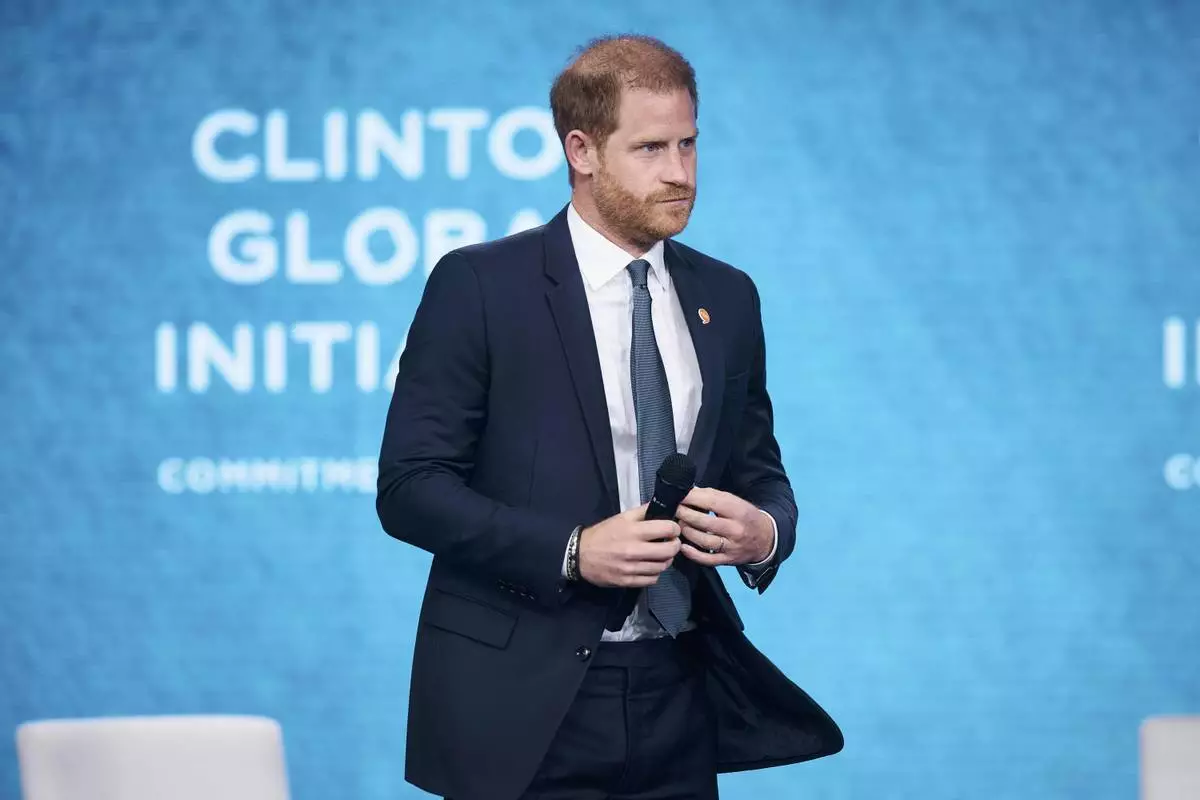
FILE - Britain's Prince Harry speaks during the Clinton Global Initiative, on Tuesday, Sept. 24, 2024, in New York. (AP Photo/Andres Kudacki, file)
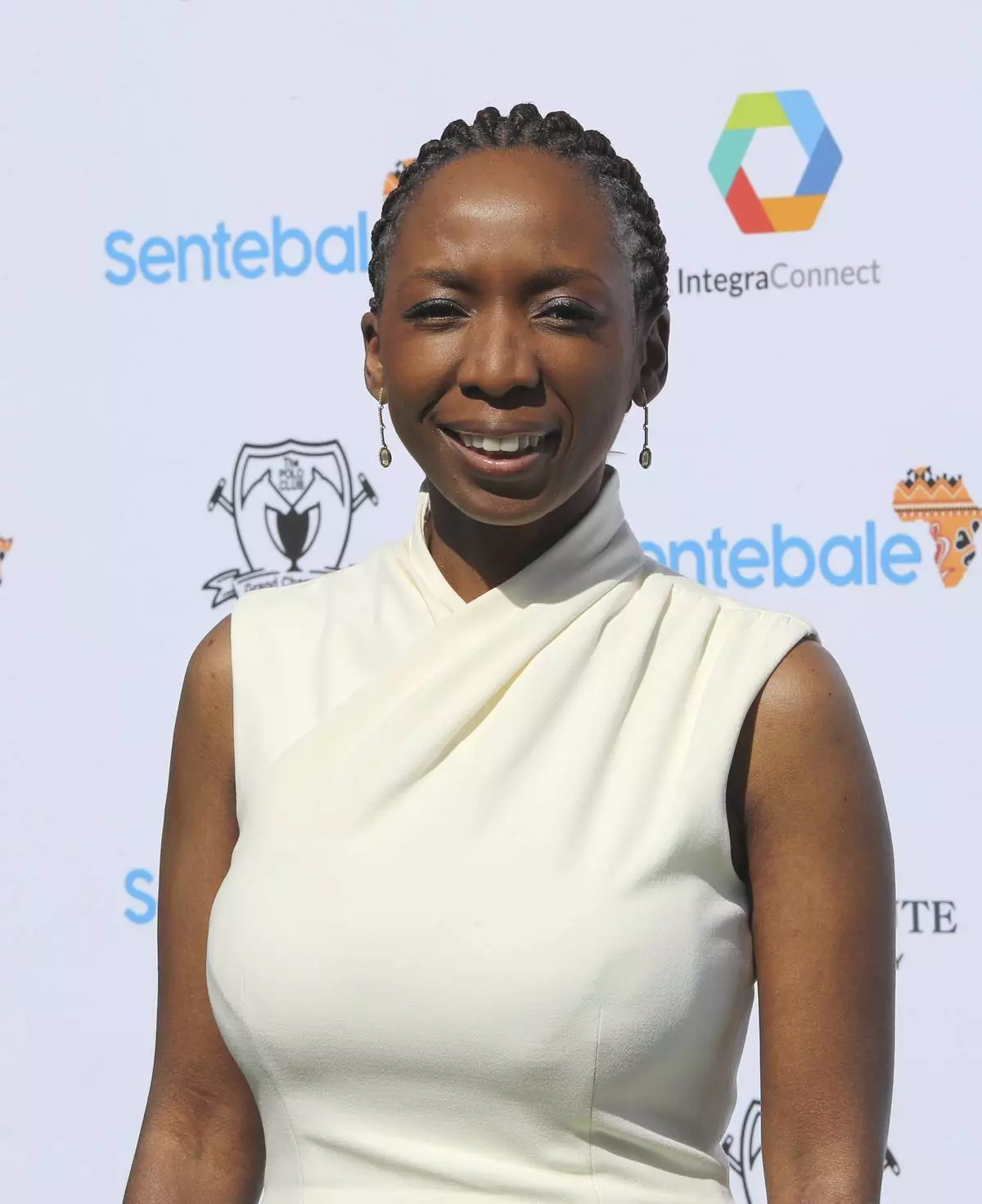
FILE - This Dec. 4, 2024 file photo shows Sentebale Chair Sophie Chandauka during the Royal Salute Polo Challenge, to benefit Sentebale, at the USPA National Polo Center in Wellington, Fla. (Yaroslav Sabitov/PA via AP)
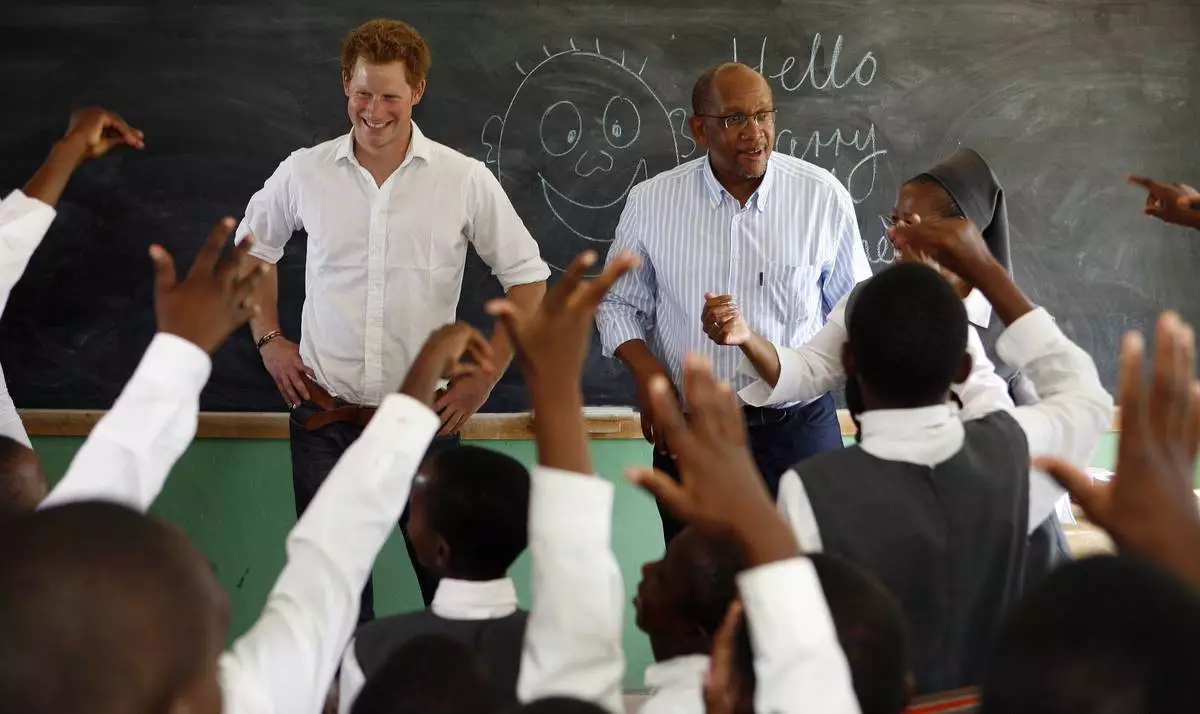
FILE - Britain's Prince Harry, left, accompanied by Prince Seeiso of Lesetho, meets pupils in a class during his visit to the Kananelo Centre for the Deaf outside Maseru, Lesotho, Wednesday, Feb. 27, 2013. (AP Photo/Themba Hadebe, File)
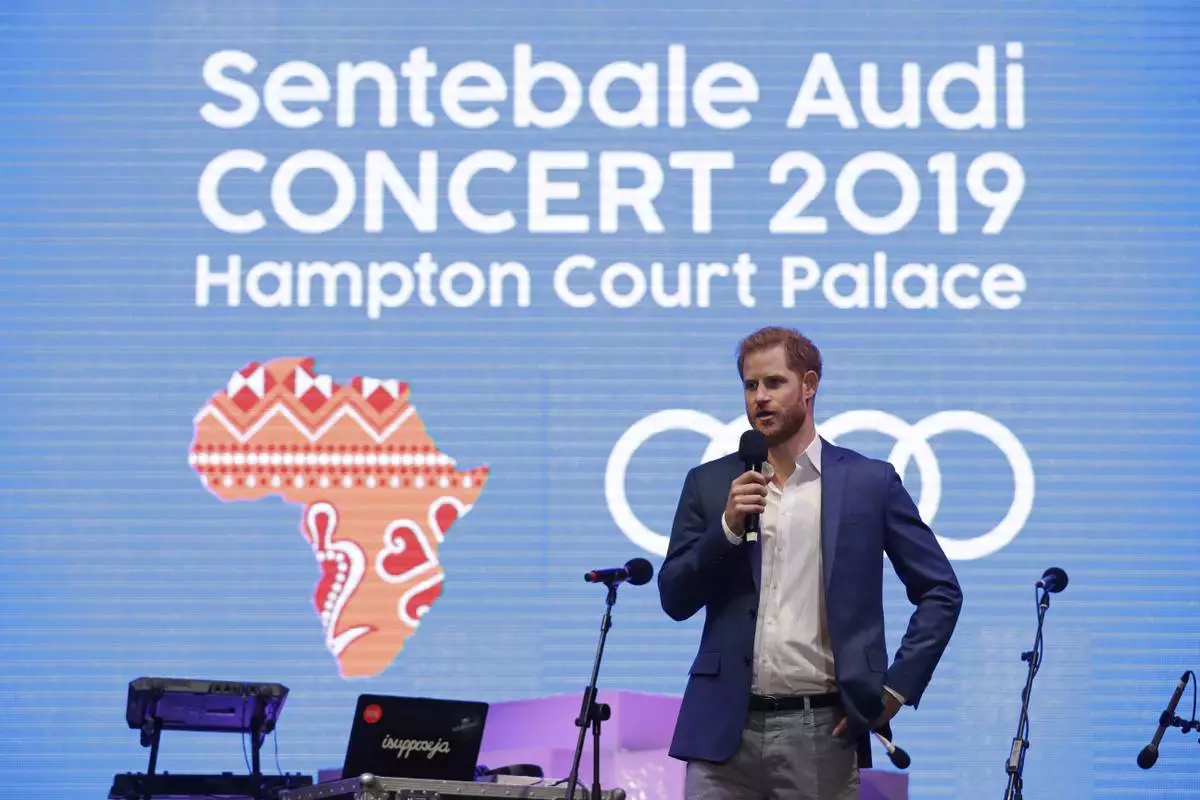
FILE - Britain's Prince Harry speaks on stage during a concert hosted by his charity Sentebale to raise funds and awareness to support children and young people affected by HIV and AIDS in Lesotho, Botswana and Malawi, at Hampton Court Palace, in London, Tuesday June 11, 2019. (AP Photo/Matt Dunham, Pool, File)
SAN FRANCISCO (AP) — A federal judge on Monday paused plans by the Trump administration to end temporary legal protections for hundreds of thousands of Venezuelans, a week before they were scheduled to expire.
The order by U.S. District Judge Edward Chen in San Francisco is a relief for 350,000 Venezuelans whose Temporary Protected Status was set to expire April 7 after Homeland Security Secretary Kristi Noem reversed protections granted by the Biden administration.
Chen said in his ruling that the action by Noem “threatens to: inflict irreparable harm on hundreds of thousands of persons whose lives, families, and livelihoods will be severely disrupted, cost the United States billions in economic activity, and injure public health and safety in communities throughout the United States.”
He said the government had failed to identify any “real countervailing harm in continuing TPS for Venezuelan beneficiaries” and said plaintiffs will likely succeed in showing that Noem’s actions “are unauthorized by law, arbitrary and capricious, and motivated by unconstitutional animus.”
Chen, who was appointed to the bench by President Barack Obama, a Democrat, said his order in the lawsuit brought by the National TPS Alliance applies nationally. Noem had also announced the end of TPS for an estimated 250,000 additional Venezuelans in September.
The judge gave the government one week to file notice of an appeal and the plaintiffs one week to file to pause for 500,000 Haitians whose TPS protections are set to expire in August. Alejandro Mayorkas, the previous secretary, had extended protections for all three cohorts into 2026.
"Today is a good day for the migrant community in this country,” said Pablo Alvarado, co-executive director of the National Day Laborer Organizing Network.
He said that people fleeing war-torn El Salvador who initially benefited from the TPS program fought to maintain protections that came to include countries such as Ukraine, Sudan and Syria — and the broader community must continue fighting.
“It takes so much courage to come forward and say, ‘Here I am, and I’m going to fight for this,’” Alvarado said. “We’re not going to throw anyone under the bus. We’re going to fight for everyone because everyone is deserving.”
The Department of Homeland Security did not immediately respond to a request for comment.
Congress created TPS, as the law is known, in 1990 to prevent deportations to countries suffering from natural disasters or civil strife, giving people authorization to live and work in the U.S. in increments of up to 18 months if the Homeland Security secretary deems conditions in their home countries are unsafe for return.
The reversals are a major about-face from immigration policies under former President Joe Biden, a Democrat, and come as Republican President Donald Trump and his top aides have ratcheted up attacks on judges who rule against them, with immigration being at the forefront of many disagreements.
At a hearing last Monday, lawyers for TPS holders said that Noem has no authority to cancel the protections and that her actions were motivated in part by racism. They asked the judge to pause Noem’s orders, citing the irreparable harm to TPS holders struggling with fear of deportation and potential separation from family members.
Government lawyers for Noem said that Congress gave the secretary clear and broad authority to make determinations related to the TPS program and that the decisions were not subject to judicial review. Plaintiffs have no right to thwart the secretary’s orders from being carried out, they said.
But Chen found the government's arguments unpersuasive and said that numerous derogatory and false comments by Noem — and by Trump — against Venezuelans as criminals show that racial animus was a motivator in ending protections.
“Acting on the basis of a negative group stereotype and generalizing such stereotype to the entire group is the classic example of racism,” he wrote.
Biden sharply expanded use of TPS and other temporary forms of protection in a strategy to create and expand legal pathways to live in the United States while suspending asylum for those who enter illegally.
Trump has questioned the the impartiality of a federal judge who blocked his plans to deport Venezuelan immigrants to El Salvador, levelling his criticism only hours before his administration asked an appeals court to lift the judge’s order.
The administration has also said it was revoking temporary protections for more than 530,000 Cubans, Haitians, Nicaraguans and Venezuelans who have come to the U.S. since October 2022 through another legal avenue called humanitarian parole, which Biden used more than any other president. Their two-year work permits will expire April 24.
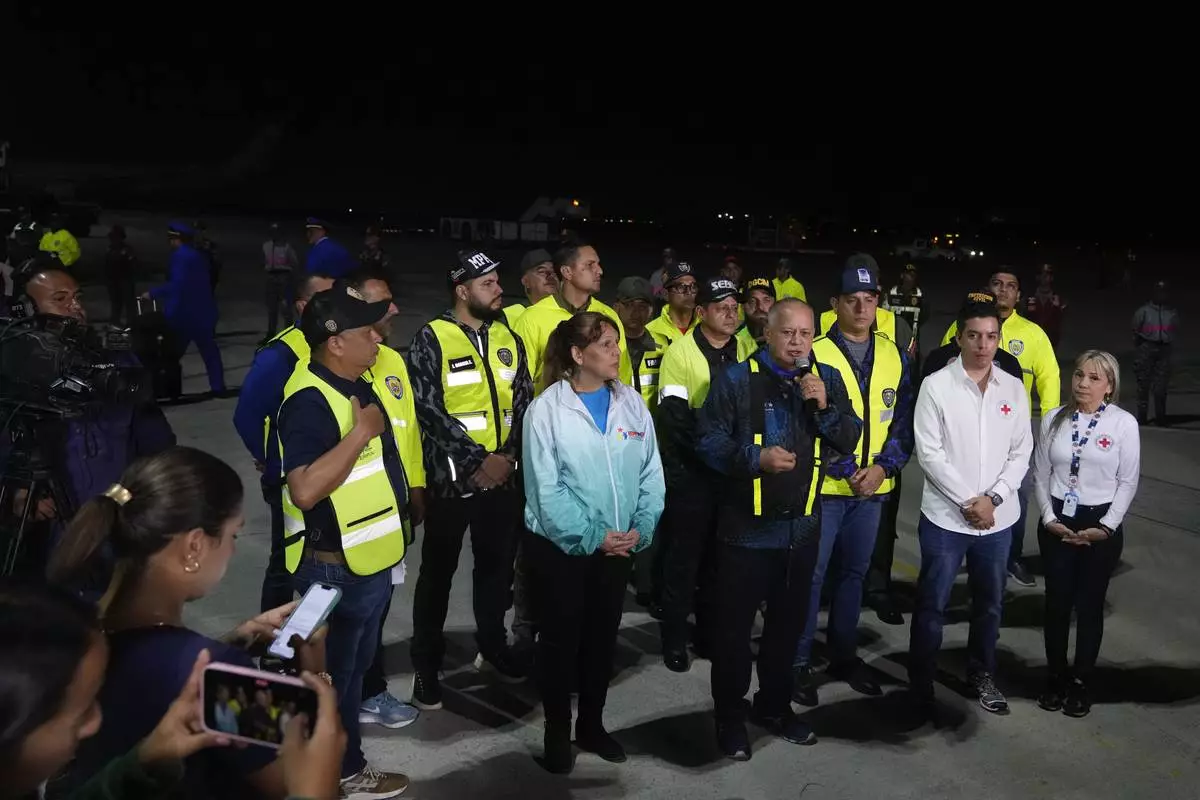
Venezuelan Interior Minister Diosdado Cabello, center, speaks to the press during the arrival of Venezuelan migrants deported from the United States at Simon Bolivar International Airport in Maiquetia, Venezuela, Monday, March 24, 2025. (AP Photo/Ariana Cubillos)

Venezuelan migrants deported from the United States peer through windows of an Eastern Airlines plane upon arriving at Simon Bolivar International Airport in Maiquetia, Venezuela, Sunday, March 30, 2025. (AP Photo/Cristian Hernandez)







